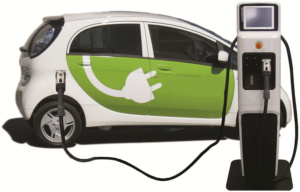
Nigeria may likely be in deeper economic trouble with the recent verdict Standford University economist that leading automobile manufacturers in Asia, Europe and the United States, to discontinue the manufacture of petrol-powered cars, buses and trucks in the next eight years.
After eight years, he said that the entire market for land transport will switch to electronic powered transport system. According to him, this will lead to the collapse of oil prices and the demise of the petroleum industry, Nigeria’s key foreign exchange earner.
In a futuristic forecast by Standford University economist, Tony Seba, people will switch en masse to self-drive electric vehicles (EVs) that are 10 times cheaper to run than fossil-based cars, with a near-zero marginal cost of fuel and an expected lifespan of 1 million miles (1.6 million kilometres).
Seba, however, said that only nostalgics will cling to the old habit of car ownership whereas the rest will adapt to vehicles on demand.
He observed that it will become harder to find a petrol station, spares, or anybody to fix the 2000 moving parts that bedevil the internal combustion engine and dealers will disappear by 2024.
“Cities will ban human drivers once the data confirms how dangerous they can be behind a wheel. This will spread to suburbs, and then beyond. There will be a “mass stranding of existing vehicles”. The value of second-hand cars will plunge. You will have to pay to dispose of your old vehicle.
It is a twin “death spiral” for big oil and big autos, with ugly implications for some big companies on the London Stock Exchange unless they adapt in time” he said.
According to him, the long-term price of crude will fall to $US25 a barrel while most forms of shale and deep-water drilling will no longer be viable.
“Assets will be stranded. Scotland will forfeit any North Sea bonanza. Russia, Saudi Arabia, Nigeria, and Venezuela will be in trouble. It is an existential threat to Ford, General Motors, and the German car industry.
They will face a choice between manufacturing EVs in a brutal low profit market, or reinventing themselves a self-drive service companies, variants of Uber and Lyft. They are in the wrong business. The next generation of cars will be “computers on wheels”. Google, Apple, and Foxconn have the disruptive edge, and are going in for the kill.
Kindly follow us on twitter:@AfricanVoice2










